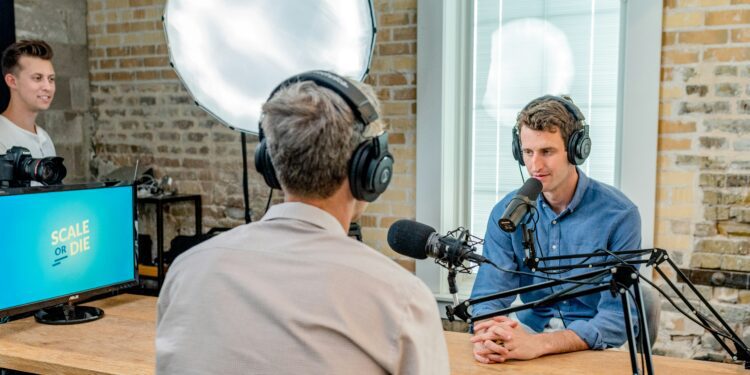As a physician writer, my mission is not only to provide healthcare to my patients but also to shed light on the challenges they face in accessing healthcare. I aim to bring their stories to a broader audience, to make people more aware of the struggles that common Americans go through when it comes to their health. This task is not without its complexities.
In my dual role as a chronicler and a doctor, I am able to go beyond the traditional expectations of healthcare. As a chronicler, I step into the shoes of a listener, an empathizer, and a seeker of a deeper understanding of the healthcare system in our society. This transformation of the patient-doctor dynamic allows for a richer and more unrestricted exchange between two individuals. However, this unique convergence can occasionally give rise to skepticism.
As a physician, my primary duty is to ensure the well-being of my patients. I am tasked with treating them, healing them, and providing them with the best possible care. Yet, when I also take on the role of a chronicler, the focus shifts towards delving into the narratives of my patients, understanding their unique challenges, and capturing their experiences. Consequently, the emphasis on their medical treatment might diminish, leading to potential doubts or uncertainties about my role as their physician.
Nevertheless, this amalgamation of roles can often bring about profound insights and greater awareness. By immersing myself in their stories, I gain a more comprehensive understanding of the interconnectedness between healthcare and society. I am able to uncover the intricate dynamics at play, the structural barriers they face, and the underlying social determinants of health. This holistic approach expands my understanding of the broader context in which my patients exist, allowing me to provide more effective and patient-centric care.
While skeptics may question the potential impact of this expanded role on the quality of care, I believe that embracing the role of a chronicler enhances my capacity as a physician. By actively acknowledging and valuing the stories and experiences of my patients, I am able to cultivate a more profound sense of empathy and compassion. This, in turn, strengthens the therapeutic alliance and creates a safe space for my patients to share their concerns, fears, and hopes openly.
Ultimately, as both a chronicler and a doctor, my goal remains unchanged – to improve the health and well-being of my patients. By combining these roles, I am able to bridge the gap between the science and art of medicine, acknowledging not only the biological aspects of illness but also the unique narratives that shape the patient’s journey. It is through the integration of these two worlds that I strive to provide comprehensive and humanistic care, leaving no stone unturned in the pursuit of healing and understanding.
By embracing the role of a chronicler, I am able to enhance the level of care that I provide to my patients. It goes beyond simply treating their physical ailments and delves into understanding their emotional and psychological well-being. This blending of roles allows me to connect with my patients on a deeper level, as we share stories and encounters that contribute to a stronger bond between us. We transcend the traditional doctor-patient relationship and become two individuals with a shared human experience.
Through the act of chronicling, I am able to explore my patients’ narratives, uncovering the unique aspects of their lives that may have influenced their current health situation. By listening attentively and recording their stories, I gain insights into their backgrounds, experiences, and cultural contexts. This knowledge empowers me to provide more personalized and holistic care, as I am able to take into account their individual circumstances and tailor treatments accordingly.
Moreover, chronicling allows me to better understand the emotions and challenges that my patients face, enabling me to offer a more empathetic approach. By sharing their stories, they feel heard and validated, while I am able to tap into their emotions and offer support where needed. This shared humanity creates a safe and trusting environment, allowing for open and honest communication between us.
In turn, the patients also benefit greatly from this blending of roles. They feel seen and heard, knowing that their experiences are valued and acknowledged. This validation not only promotes their overall well-being but also encourages them to actively participate in their own healthcare journey. They become more invested in their treatment plans and are more likely to adhere to recommendations.
Of course, translating this intricate dynamic onto paper is not an easy task. There are unique barriers in conveying the emotions, the nuances, and the complexities of these personal narratives. But the importance of each story within the healthcare landscape cannot be understated. By sharing these stories, I hope to bring about change, to highlight the flaws in our system, and to advocate for better access to healthcare for all everyday American citizens.
















Dr. Joshi’s insightful reflection on the dual role of a physician and chronicler is profoundly moving and strikes at the heart of patient-centered care.. His dedication to not only treating but also understanding and sharing the personal narratives of his patients offers a refreshing perspective in today’s healthcare landscape. It’s rare to see a medical professional so committed to bridging the gap between the clinical aspects of healthcare and the human stories behind each patient’s journey. Dr. Joshi’s efforts to humanize and personalize healthcare through storytelling are commendable and set a powerful example for healthcare professionals everywhere. His work transcends traditional medical practice, advocating for a more supportive and empathetic, approach to health and well-being. Thank you, Dr. Joshi, for reminding us of the profound impact compassionate care and storytelling can have on improving healthcare outcomes and patient experiences.